5 Best Forklift Brands: A Comparison
Have you ever felt lost in the maze of forklift brands? Picture this: You’re in your warehouse, surrounded by options, wondering which forklift brand will be your perfect match. It’s like finding a needle in a haystack, right? Don’t sweat it – we’re here to help you navigate the world of forklift brands!
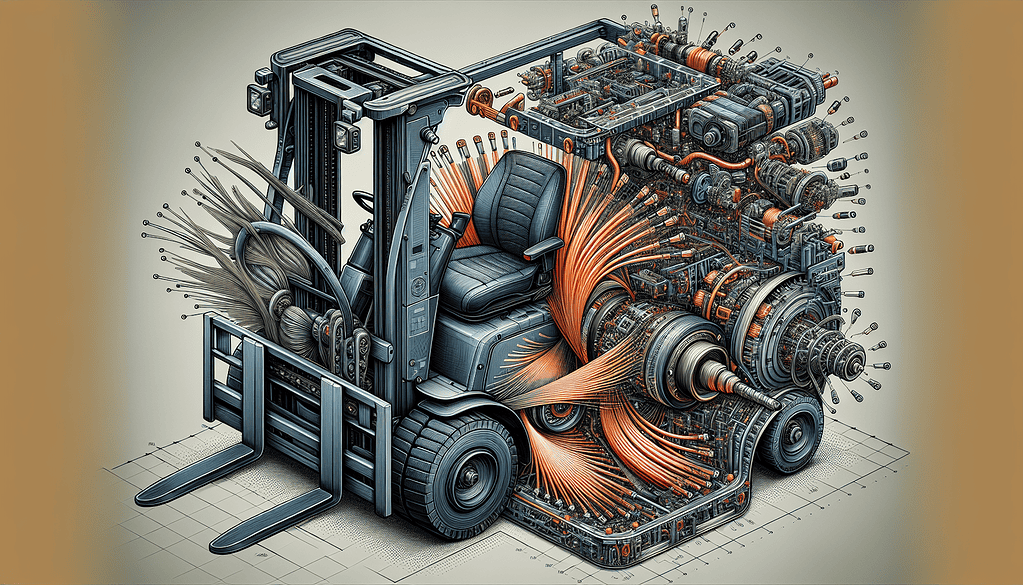
Table of Contents
This post will break down the top 5 forklift brands for different warehouse types. We’ll look at what makes each brand special, like comparing superheroes and their unique powers. Whether you’re running a tiny storage space or a massive distribution center, we’ve got you covered.
Here’s what you can expect from our forklift brand showdown:
The best brands for small, medium, and large warehouses
Which forklifts can handle the chill of cold storage
Tough machines for outdoor and rough terrain work
Nimble options for those tight, narrow aisles
Factors to Consider When Choosing a Forklift
Before diving into the top brands, let’s discuss what you must consider when picking a forklift. It’s like choosing a car – you’ve got to consider many things to ensure you get the right fit.
Warehouse Layout
Is your warehouse a maze of narrow aisles, or does it have wide-open spaces? The size and layout of your warehouse will help determine what type of forklift you need. Think of it like choosing between a compact car for city driving or an SUV for open roads.
Lifting Needs
How high do you need to lift stuff, and how heavy are your loads? This is super important – you don’t want to end up with a forklift that can’t reach your top shelves or struggles to lift your heaviest items.
Fuel Type
Gas, diesel, or electric? Each has its pros and cons. Electric forklifts are eco-friendly and great for indoor use, while gas and diesel are often better for outdoor use or when you need more power.
Diesel forklifts are known for their reliability and versatility in various industrial applications, making them essential tools for material handling in diverse environments.
Electric lift trucks, conversely, are efficient and suitable for tasks in confined spaces and various indoor environments, thanks to their innovative technology. A reputable forklift manufacturer can offer a range of models with different fuel types to suit various needs.
Budget
Let’s face it – money matters. But remember, sometimes spending more upfront can save you cash in the long run.
Safety Features
Look for forklifts with good safety ratings and features. It’s like choosing a car with airbags and anti-lock brakes – safety should always be a top priority.
Maintenance
Some forklifts are easier to maintain than others. Consider how much time and money you want to spend on upkeep or whether you want to hire a service to perform these tasks for you.
Keep these factors in mind as we review the top brands. They’ll help you determine which brand and model best suits your needs. Remember, there’s no one-size-fits-all solution—it’s all about finding the right match for your warehouse!
Types of Warehouses and Their Forklift Needs
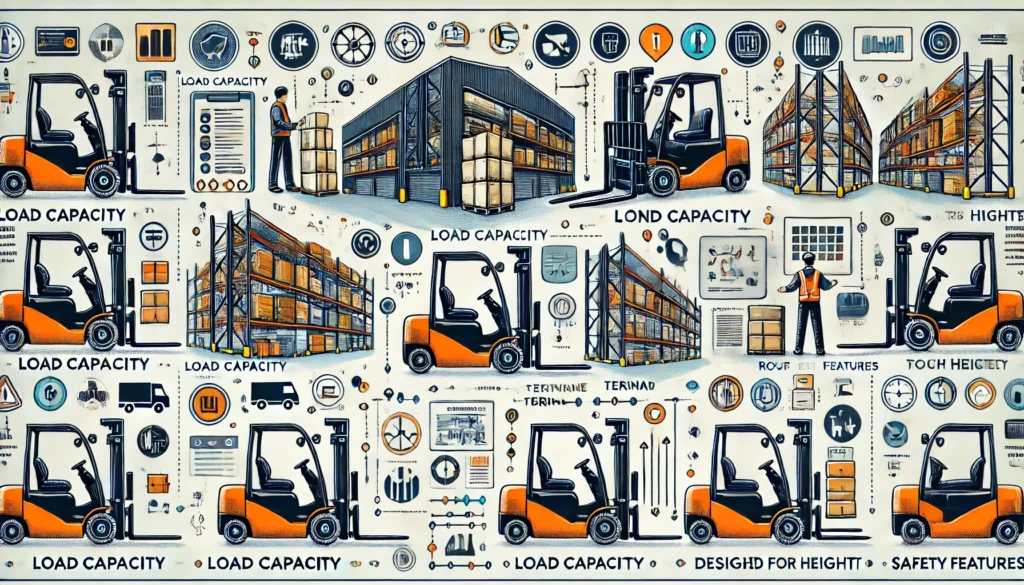
Now that we’ve covered what to look for in a forklift, let’s talk about different types of warehouses. How different sports need different gear, and different warehouses need different forklifts. Let’s break it down:
Small to Medium-Sized Warehouses
These are your cozy, compact spaces. You probably need a nimble forklift that can turn on a dime. Think of it like a smart car – small, efficient, and perfect for tight spaces. Electric forklifts are often a great choice here because they’re quiet and don’t give off fumes.
Large Distribution Centers
Welcome to the big leagues! These massive spaces need forklifts that can go the distance. You’re looking for machines with good speed, high lift capacities, and long battery life (if electric). It’s like needing a long-distance runner instead of a sprinter.
Heavy-duty forklifts are crucial for handling the heaviest loads across various industries, ensuring reliable solutions for tough material handling tasks.
Cold Storage Facilities
Brrr! These chilly warehouses need special forklifts that can handle the cold. Regular forklifts might struggle in these icy conditions, and your car might have trouble starting on a freezing winter morning. Look for forklifts designed specifically for cold environments.
Outdoor/Rough Terrain Warehouses
If your warehouse work involves the great outdoors or bumpy surfaces, you need a tough cookie. These forklifts are like the monster trucks of the warehouse world—big tires, powerful engines, and built to handle whatever you throw at them.
Material handling equipment plays a vital role in boosting operational efficiency and ensuring smooth movement and storage of goods.
Narrow Aisle Warehouses
Do you have aisles skinnier than a Fashion Week runway? You need a forklift that can squeeze through tight spaces. These specialized narrow aisle forklifts are like expert parallel parkers – they can maneuver in spaces that would make other forklifts break out in a cold sweat.
Top Forklift Manufacturers and Their Specialties
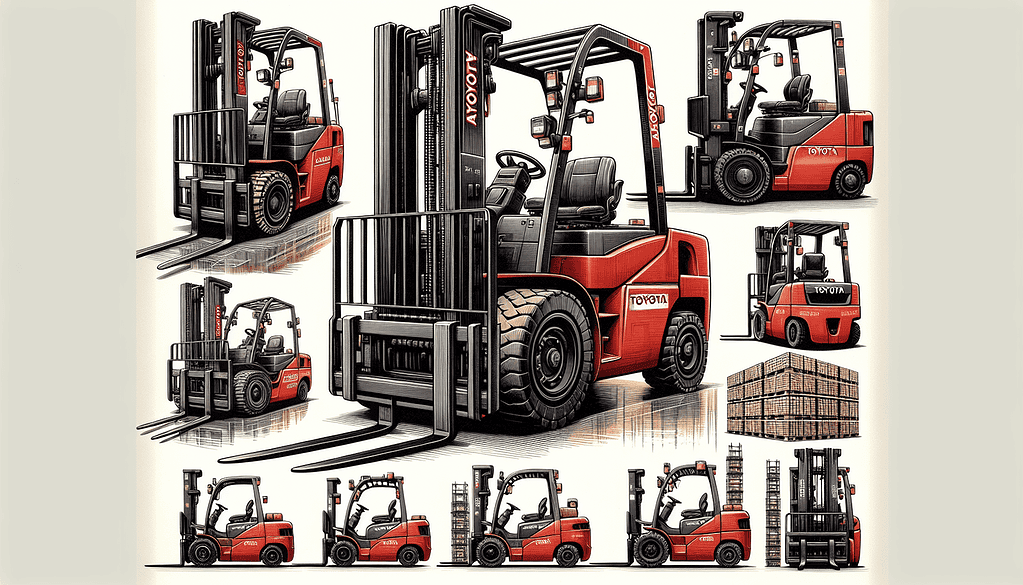
Alright, folks, it’s time for the main event – our forklift brand showdown! As leading forklift manufacturers, these companies are renowned for creating reliable and innovative forklift models.
We’re about to introduce you to the heavyweight champions of the warehouse world. Each of these brands has its superpowers, so let’s get to know them:
1. Toyota Material Handling
Toyota is the largest and most recognized forklift brand globally. Known for their safety, durability, and efficiency, Toyota forklifts are popular across various industries.
Excellent reliability, a wide range of electric and internal combustion models, a strong dealer network, and advanced safety features like the System of Active Stability (SAS).
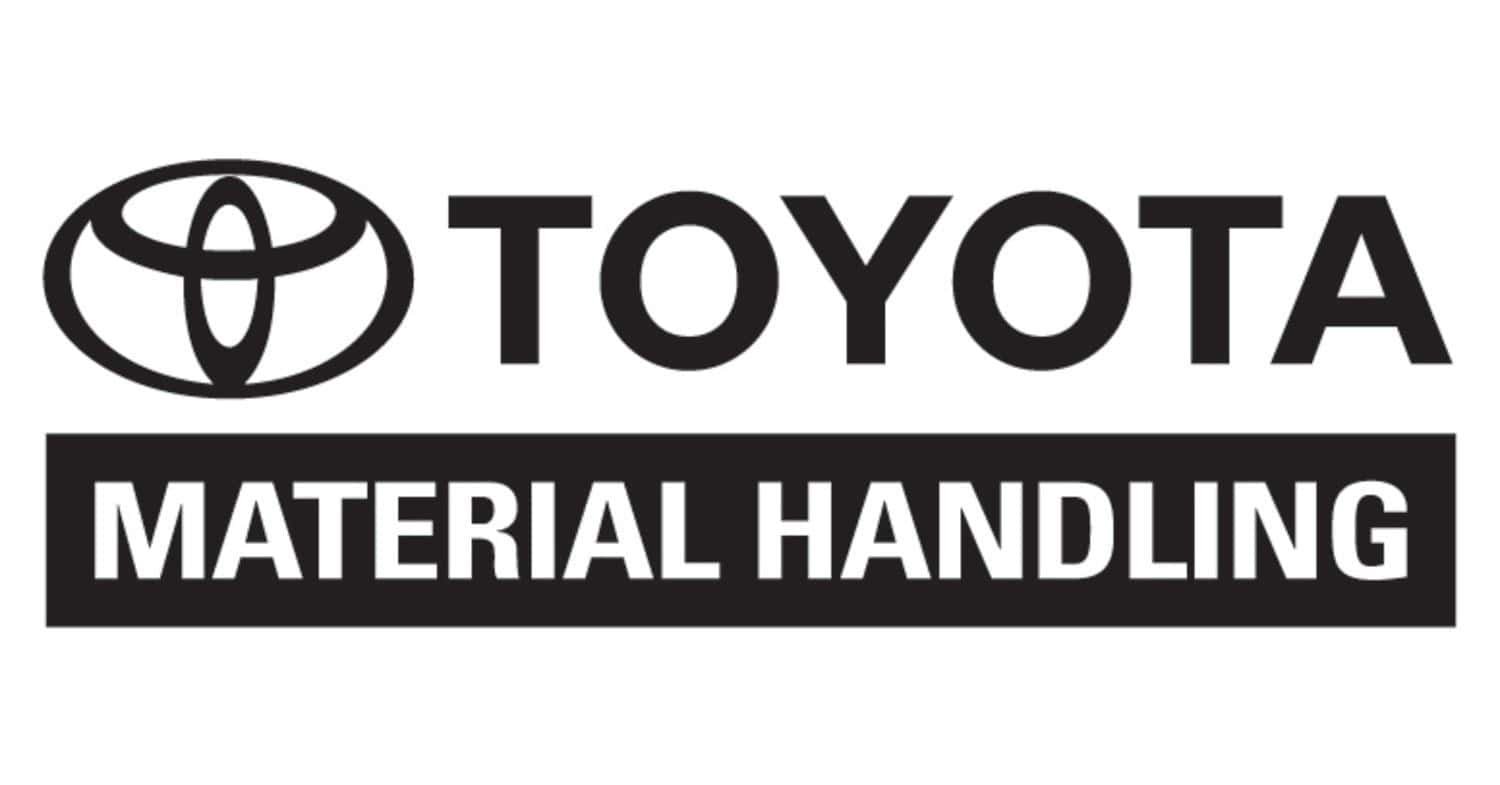
Key Features and Benefits of Toyota Forklifts:
- Reliability: Toyota forklifts are built to last, with a reputation for minimal downtime and long service life.
- Efficiency: Their designs often incorporate features to enhance productivity, such as ergonomic controls and efficient power systems.
- Safety: Toyota prioritizes safety in their forklifts, with features like advanced stability control and operator comfort. Toyota has equipped most of our forklifts since 1999 with the patented System of Active Stability (SAS.)
- Customization: They offer various models and options to suit industry needs and specific applications. You can also choose between new and used.
- Environmental Friendliness: Toyota has been at the forefront of developing environmentally friendly forklifts, including electric and hybrid options.
Popular Types of Toyota Forklifts:
- Counterbalance Forklifts: The most common type used for general material handling tasks.
- Reach Trucks: Ideal for high-density storage applications, allowing for efficient vertical storage.
- Order Pickers: Designed for picking individual items from high-level storage racks.
- Tow Tractors: Used for pulling trailers or carts in warehouse or manufacturing environments.
2. Crown Equipment Corporation
Crown is an American company recognized for its ergonomic designs and high-performance forklifts, particularly in the electric forklift category.
Innovative design, strong focus on operator comfort, and excellent after-sales service. Crown is also known for its warehouse solutions and equipment integration.

Key Features of Crown Forklifts:
- Reliability: Crown forklifts are built to last, with a reputation for minimal downtime and long service life.
- Efficiency: Their designs often incorporate features to enhance productivity, such as ergonomic controls and efficient power systems.
- Safety: Crown prioritizes safety in their forklifts, with features like advanced stability control and operator comfort.
- Customization: They offer various models and options to suit industry needs and specific applications.
- Environmental Friendliness: Crown has been at the forefront of developing environmentally friendly forklifts, including electric and hybrid options.
Popular Types of Crown Forklifts:
- Counterbalance Forklifts: The most common type used for general material handling tasks.
- Reach Trucks: Ideal for high-density storage applications, allowing for efficient vertical storage.
- Order Pickers: Designed for picking individual items from high-level storage racks.
- Tow Tractors: Used for pulling trailers or carts in warehouse or manufacturing environments.
3. Raymond Forklifts
Raymond Corporation is a renowned manufacturer of material handling equipment, specializing in forklifts. Known for their innovative designs and commitment to quality, Raymond forklifts are widely used in various industries.

Key Features of Raymond Forklifts:
- Reliability: Raymond forklifts are built to last, with a reputation for minimal downtime and long service life.
- Efficiency: Their designs often incorporate features to enhance productivity, such as ergonomic controls and efficient power systems.
- Safety: Raymond prioritizes safety in their forklifts, with features like advanced stability control and operator comfort.
- Customization: They offer various models and options to suit industry needs and specific applications.
- Environmental Friendliness: Raymond has developed environmentally friendly forklifts, including electric and hybrid options.
Popular Types of Raymond Forklifts:
- Counterbalance Forklifts: The most common type used for general material handling tasks.
- Reach Trucks: Ideal for high-density storage applications, allowing for efficient vertical storage.
- Order Pickers: Designed for picking individual items from high-level storage racks.
- Tow Tractors: Used for pulling trailers or carts in warehouse or manufacturing environments.
4. Hyster-Yale Materials Handling
Hyster and Yale are two brands under the Hyster-Yale Materials Handling group. They offer various forklifts suitable for various applications, from light to heavy-duty.
Robust design, reliability, and a strong global dealer network. They provide solutions for indoor and outdoor applications and are known for their toughness in demanding environments.

Hyster-Yale is the tough guy of the bunch. Their forklifts are built to handle heavy loads and rough conditions. If you need a forklift to bench press a car (figuratively speaking), Hyster-Yale might be your go-to. They’re particularly strong in the big truck and container handler market.
5. Jungheinrich
A German company with a strong presence in Europe, Jungheinrich is known for its advanced warehouse and material handling solutions, including electric forklifts.
Energy efficiency, cutting-edge technology, and comprehensive solutions for intralogistics. Jungheinrich forklifts are particularly known for their longevity and low total cost of ownership.

Say “Young-hine-rick” three times fast! This German brand is like the European sports car of forklifts – efficient, precise, and focused on electric power. They’re big on energy efficiency and smart warehouse solutions. If your warehouse were a fancy nightclub, Jungheinrich would be the smooth operator gliding across the dance floor.
Best Forklifts for Different Warehouse Types
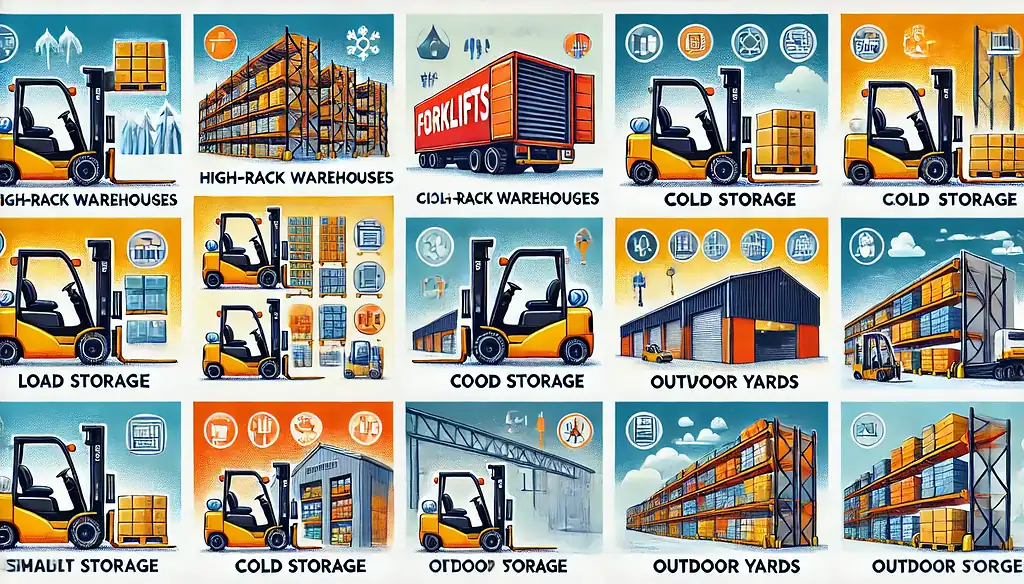
A reputable forklift manufacturer can provide the best models for different warehouse types.
Alright, warehouse wizards, it’s time to play matchmaker! We’re going to pair up our brands with different warehouse types. It’s like finding the perfect dance partner for each style of warehouse tango. Let’s boogie!
Small to Medium-Sized Warehouses
For these cozy spaces, you need a forklift that can squeeze through tight spots and won’t break the bank.
Best picks:
Toyota 8-Series 3-Wheel Electric Forklift: It’s like a nimble cat in a forklift costume.
Crown RC Series: This stand-up rider is perfect for scooting around smaller spaces.
Why they work: These models are compact, easy to maneuver, and great for indoor use. Plus, they’re electric, so enclosed spaces have no fume issues.
Large Distribution Centers
In these warehouse jungles, you need a forklift to cover long distances and handle heavy loads without sweat.
Top choices:
Hyster H80-120FT: This bad boy can lift up to 12,000 pounds. It’s like the Hulk of forklifts.
Toyota 8FGU25: A gas-powered powerhouse that can keep going all day long.
Why they’re great: These forklifts have the strength and stamina to handle the demands of a busy distribution center.
Cold Storage Facilities
Brrr! These chilly warehouses need special forklifts that won’t freeze up when the temperature drops.
Cool contenders:
Raymond 7000 Series Reach-Fork Truck: It’s like it was born wearing a parka.
Jungheinrich EFG 425k: This electric forklift keeps its cool in cold conditions.
Why they rock: These models are designed to operate in frigid temperatures without losing performance.
Outdoor/Rough Terrain Warehouses: Best Rough Terrain Forklifts
You need a tougher forklift than a two-dollar steak for the great outdoors or bumpy warehouse yards. Here are some rough terrain forklifts from our favorite forklift manufacturers.
Construction equipment is crucial in these environments, providing the versatility and strength to handle various industrial applications.
Rugged options:
Hyster H190-360HD2: This beast laughs in the face of rough terrain.
Toyota THD2200-8: It’s like the monster truck of forklifts.
Why they’re awesome: These models have the muscle and durability to handle outdoor conditions and uneven surfaces.
Narrow Aisle Warehouses
Do you have aisles skinnier than a fashion model? It would be best to have a forklift that can squeeze through tight spaces like a pro.
Slim fits:
Crown RM 6000: This reach truck can navigate aisles as narrow as 7 feet!
Raymond 9000 Series Swing-Reach: It’s like a gymnast – flexible and precise.
Why they work: These specialized forklifts are designed to maximize space in warehouses with narrow aisles.
Newly Released: Electric Forklift Designed for Outdoor Use
The 4800 and 4810 models are designed for outdoor use in industries such as lumberyards, big-box stores, and container yards. These electric forklifts deliver emissions-free, low-maintenance performance without sacrificing versatility or ease of use.
Slim fits:
Raymond 4800 and 4810 80-volt sit-down counterbalanced trucks
Why they work: Equipped with the Raymond Performance Stability System™, these models offer precise control and an ergonomic operator station with adjustable seating, armrest, and fingertip controls. Options for enclosed cabins and a power select function enhance adaptability, while the open-view mast improves visibility.
Cost-Effective Sustainability: The 4800 and 4810 models offer low maintenance with wet disc brakes and rechargeable batteries, eliminating the need for spark plugs, tune-ups, and oil changes. An energy regeneration system extends runtime by recapturing energy during operation.
An Eco-Friendly Shift: These models support the growing demand for sustainable solutions. They are effective indoors and outdoors, aligning with industry shifts toward greener operations. Integrating seamlessly with iWAREHOUSE and Raymond Telematics, they are ideal for transitioning to an all-electric fleet.
Comparison of Top Models
Alright, forklift fans, it’s time for our head-to-head showdown! A manufacturer designs models to meet various performance needs, ensuring top-notch quality and efficiency. We will compare some of our top picks in a few key areas. It’s like a forklift beauty pageant, but we’re looking at lifting capacity and turning radius instead of swimsuit competitions. Let’s dive in!
Performance Face-Off
Let’s put the Toyota 8FGU25 truck against the Hyster H80-120FT truck in a large distribution center setting.
Hyster H80-120FT
- Load Capacity: 8,000-12,000 lbs.
- Engine: Diesel or LPG options.
- Maneuverability: Excellent stability and control.
- Safety: Enhanced Operator Protection System.
- Durability: Robust construction, heavy-duty.
Toyota 8FGU25
- Load Capacity: 5,000 lbs.
- Engine: Toyota 4Y engine.
- Maneuverability: Tight turning radius.
- Safety: System of Active Stability (SAS) and Operator Presence Sensing (OPS).
The Hyster is like the bodybuilder of the two – it can lift heavier loads higher. However, the Toyota is neither slouch nor might be more fuel-efficient for lighter loads.
Narrow Aisle Ninja Battle
Let’s see how the Crown RM 6000 stacks against the Raymond 9000 Series Swing-Reach.
Crown RM 6000
- Load Capacity: Up to 4,500 lbs.
- Height: Lifts up to 505 inches.
- Maneuverability: Narrow aisle design.
- Visibility: Clear-view mast.
- Efficiency: Regenerative lowering for energy savings.
Raymond 9000 Series Swing-Reach
- Load Capacity: Up to 3,000 lbs.
- Height: Lifts up to 444 inches.
- Maneuverability: 180-degree rotating turret.
- Efficiency: AC drive and lift system.
- Control: Advanced ergonomics and intuitive controls.
Both models are like star gymnasts—flexible and reaching for the sky, but the Crown can reach a bit higher and handle heavier loads.
Cost-Effectiveness Showdown
Now, let’s talk money. Remember, the cheapest option isn’t always the most cost-effective in the long run.
- Electric models like the Jungheinrich EFG 425k might cost more upfront but are cheaper to fuel and maintain over time. It’s like buying an electric car – a higher sticker price, but you save at the pump.
- Gas-powered models like the Toyota 8FGU25 are usually cheaper to buy initially, but fuel and maintenance costs add up. They’re like a gas-guzzling muscle car – fun to drive, but prepare for those fuel bills!
Maintenance and Support
- Toyota and Raymond are known for their excellent dealer networks and parts availability. It’s like having a trusted mechanic in every city.
- Jungheinrich is a German brand that might have less widespread support in some areas, but its machines are built to last.
User Reviews and Ratings
- The Crown RC Series consistently gets high marks for operator comfort and ease of use. Operators say it’s like driving a comfy armchair.
- Hyster’s tough trucks, like the H80-120FT, are praised for their durability in rough conditions. Users say they’re the tanks of the forklift world.
Remember, the “best” forklift depends on your specific needs. It’s like choosing a car – a sports car might be fun, but it’s not great for hauling lumber!
BONUS ROUND: Mitsubishi Forklift Trucks – The Dark Horse of the Warehouse
Hey, wait a second! Before we wrap things up, let’s spotlight a brand that deserves extra attention – Mitsubishi Forklift Trucks. Consider this our “after-credits scene” in the blockbuster movie of forklift brands!
Mitsubishi might be better known for their cars but they don’t sleep on their forklifts. These machines are like the quiet kid in class who turns out to be a secret genius. Let’s break it down:
What makes Mitsubishi special?
- Reliability: These forklifts are tougher than a two-dollar steak. They’re built to last, which means less downtime and more lifting time.
- Comfort: Mitsubishi emphasizes ergonomics. It’s like they’ve added a La-Z-Boy to a forklift!
- Innovation: They’re always cooking up new tech to make their forklifts smarter and more efficient.
Top Mitsubishi models to watch out for:
- Mitsubishi FG25N: This is their bread-and-butter forklift. It’s like the Swiss Army knife of the warehouse – versatile and dependable.
- Mitsubishi EDiA EM: An electric forklift that packs a punch. It’s eco-friendly but still tough enough to handle heavy loads.
- Mitsubishi SENSiA: This reach truck is perfect for narrow aisles. It’s like a ballerina – graceful, precise, and surprisingly strong.
Why consider Mitsubishi?
- Mitsubishi is worth a look if you’re looking for a brand that offers a good balance of quality and value.
- They’re particularly strong in the mid-range market. They’re not too fancy, not too basic—just right for many warehouses.
- Their dealer network is growing, which means better support and service in more areas.
Fun fact: Mitsubishi has been in the forklift game since 1992 when they formed a joint venture with Caterpillar. That’s some serious pedigree!
So, if you’re shopping for forklifts, don’t forget to look at Mitsubishi. They might be the perfect fit for your warehouse needs. After all, sometimes the best solution is the one you least expect – like finding out your quiet neighbor is a superhero!
Remember, it pays to consider all your options in the world of forklifts. You never know where you’ll find your perfect match!
Emerging Trends in Forklift Technology
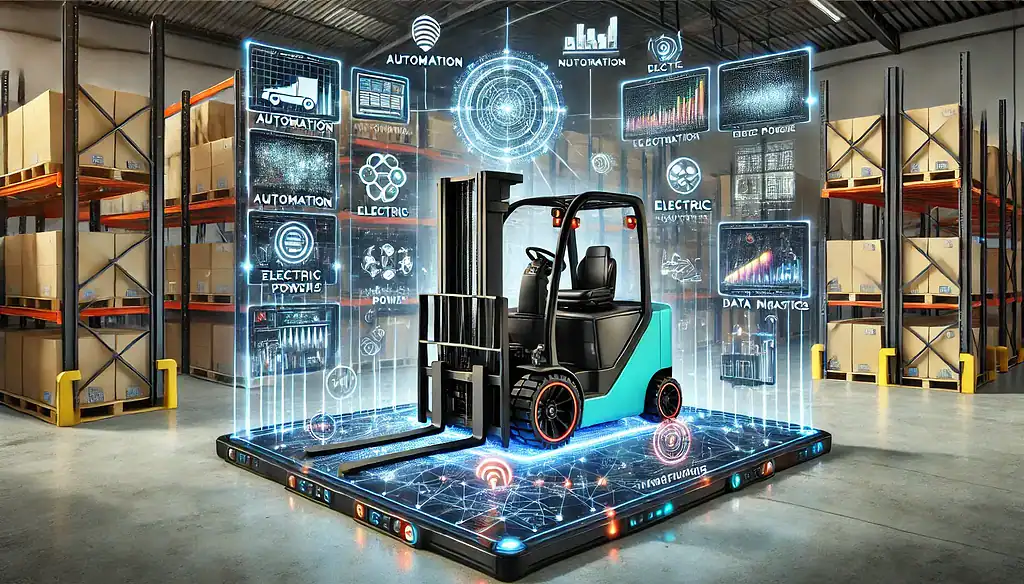
Buckle up, forklift fans, because the future is looking pretty wild! Here are some cool trends that are shaking up the forklift world:
Electric Avenue: The Rise of Electric Lift Trucks (Electric forklifts)
Move over, gas guzzlers! Electric forklifts are taking center stage. They’re like the Tesla of the warehouse world – clean, quiet, and surprisingly powerful. Mitsubishi Logisnext Co., Ltd. is a prominent player in this market, offering innovative technology in their electric forklift range.
Lithium-ion batteries are the new hotness. They charge faster than you can say “lunch break” and last longer than that meeting that should’ve been an email.
Some brands are even experimenting with hydrogen fuel cells. It’s like giving your forklift superpowers – quick refueling and zero emissions!
Why it matters: These eco-friendly options are good for Mother Nature and easier on the wallet in the long run. Plus, your warehouse won’t smell like a gas station anymore!
Robots on the Rise
Automated Guided Vehicles (AGVs) are like the self-driving cars of the warehouse world. They’re getting smarter every day!
Picture this: forklifts that can find their way around the warehouse, pick up loads, and even recharge themselves. It’s like having a team of robot helpers!
Some AGVs can even work alongside human operators. It’s not quite “I, Robot” yet, but we’re getting there!
Why it’s cool: AGVs can work 24/7 without coffee breaks. They’re great for repetitive tasks and can help reduce accidents caused by human error.
Telematics: The Warehouse Whisperer
Telematics systems are like having a super-smart assistant for your whole forklift fleet.
These systems can track everything from battery life to operator performance. It’s like having a Fitbit for your forklift!
Some can even predict when your forklift needs maintenance before it breaks down. It’s practically psychic!
Why it rocks: Better fleet management means less downtime, lower costs, and happier warehouse managers. Win-win-win!
Virtual Reality Training
Why risk damaging real forklifts when you can train in a virtual world?
VR training lets new operators practice in a safe, virtual warehouse. It’s like a video game, but you’re learning real skills!
Some systems can even simulate dangerous situations without any real-world risk. Talk about a safe way to learn!
Why it’s awesome: Safer training, lower costs, and operators who are better prepared for real-world challenges. Plus, it’s way more fun than reading a manual!
Ergonomics 2.0
Forklift designers are focusing more on operator comfort. Because a comfy operator is a productive operator!
Think adjustable seats that remember your favorite position, like your car does.
Some models even have touchscreen controls and joysticks. It’s almost like playing a video game at work!
Why it matters: Happier, healthier operators mean fewer sick days and more efficient work. Everybody wins!
Conclusion

Alright, warehouse warriors, we’ve reached the finish line of our forklift adventure! Let’s recap what we’ve learned and send you off with some final words of wisdom.
We’ve cruised through the world of forklifts, from the nimble machines perfect for small warehouses to the heavy-duty beasts that handle outdoor terrains.
We’ve met the top brands – Toyota, Crown, Hyster-Yale, Jungheinrich, and Raymond – each with their own superpowers. And we’ve even peeked into the future with electric models, robot helpers, and VR training.
But here’s the thing to remember: there’s no one-size-fits-all solution when it comes to forklifts. It’s like choosing a pair of shoes – what works for your buddy’s warehouse might give you blisters in yours.
So, how do you pick the right forklift? Here’s your three-step game plan:
Know Your Warehouse: Take a good, hard look at your space, your typical loads, and your daily operations. Are you navigating narrow aisles or lifting heavy pallets to the sky?
Consider Your Budget: Remember, sometimes spending a bit more upfront can save you a ton in the long run. It’s like buying a good mattress – your back (and wallet) will thank you later.
Think About the Future: Are you planning to expand? Might your needs change? Choose a forklift that can grow with you.
And here’s a pro tip: don’t be shy about asking for a test drive. Any good forklift dealer should let you take their machines for a spin. It’s like dating – you wouldn’t marry someone after just one coffee, right?
Remember, the perfect forklift is out there waiting for you. It might be a Toyota that can dance through tight spaces, a Hyster that can bench press a car, or a Crown that’s smarter than your smartphone. Your job is to find the one that makes your warehouse hum like a well-oiled machine.
So go forth, forklift friend, and find your perfect match. Your warehouse efficiency (and your back) will thank you. And hey, who knows? Maybe one day you’ll be zooming around on a flying, self-driving, AI-powered super forklift. A warehouse manager can dream, right?
Until then, keep lifting, keep shifting, and keep your warehouse running smooth. You’ve got this!
In summary, top forklift manufacturers like Anhui Heli, Manitou Group, and Linde have made significant contributions to the industry with their reliable and innovative equipment, guiding you in selecting the best tools for material handling.
Choosing a reputable manufacturer ensures quality and reliability, crucial for your operational success.



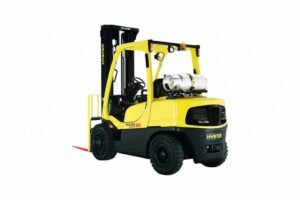
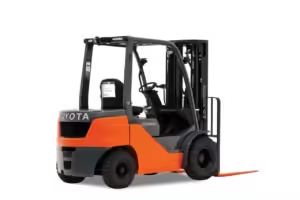
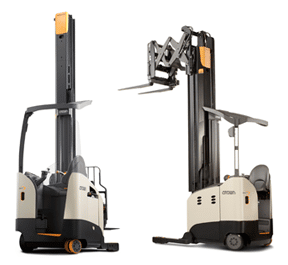
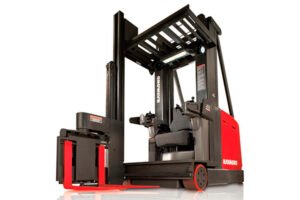
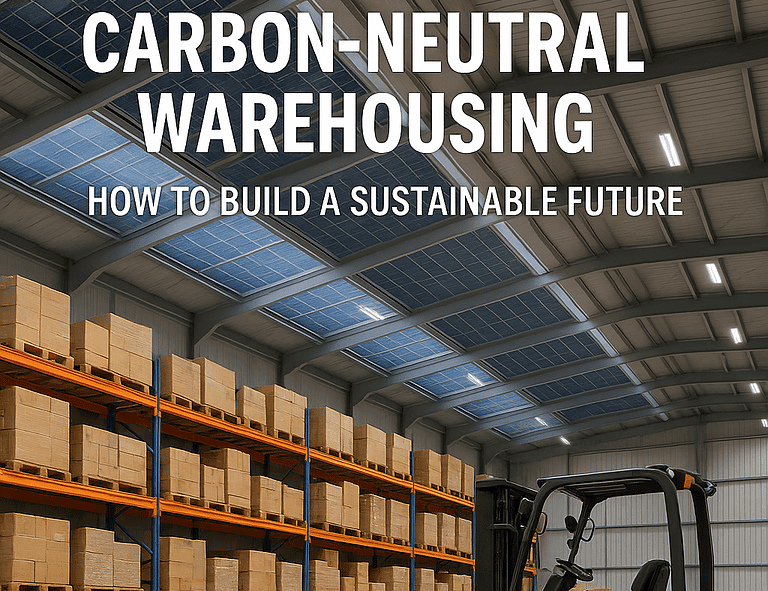
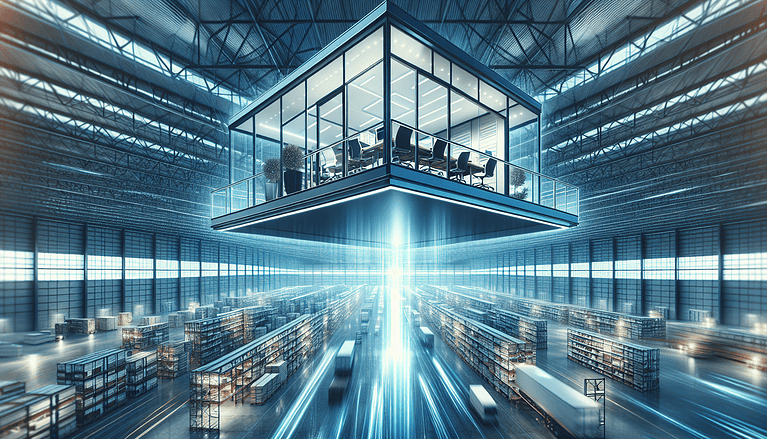
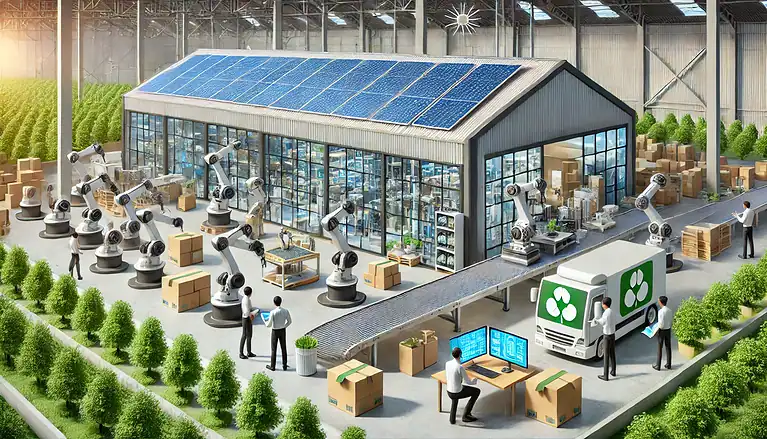

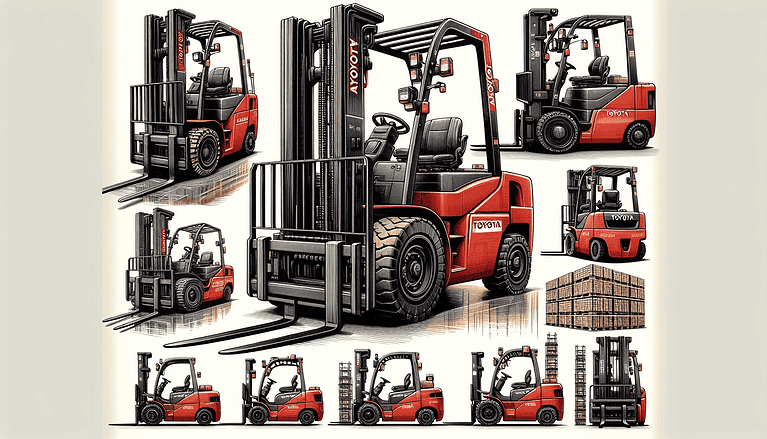

Please stop using bad AI images in your webpage, they contain terrible spelling mistakes that make you look unprofessional.